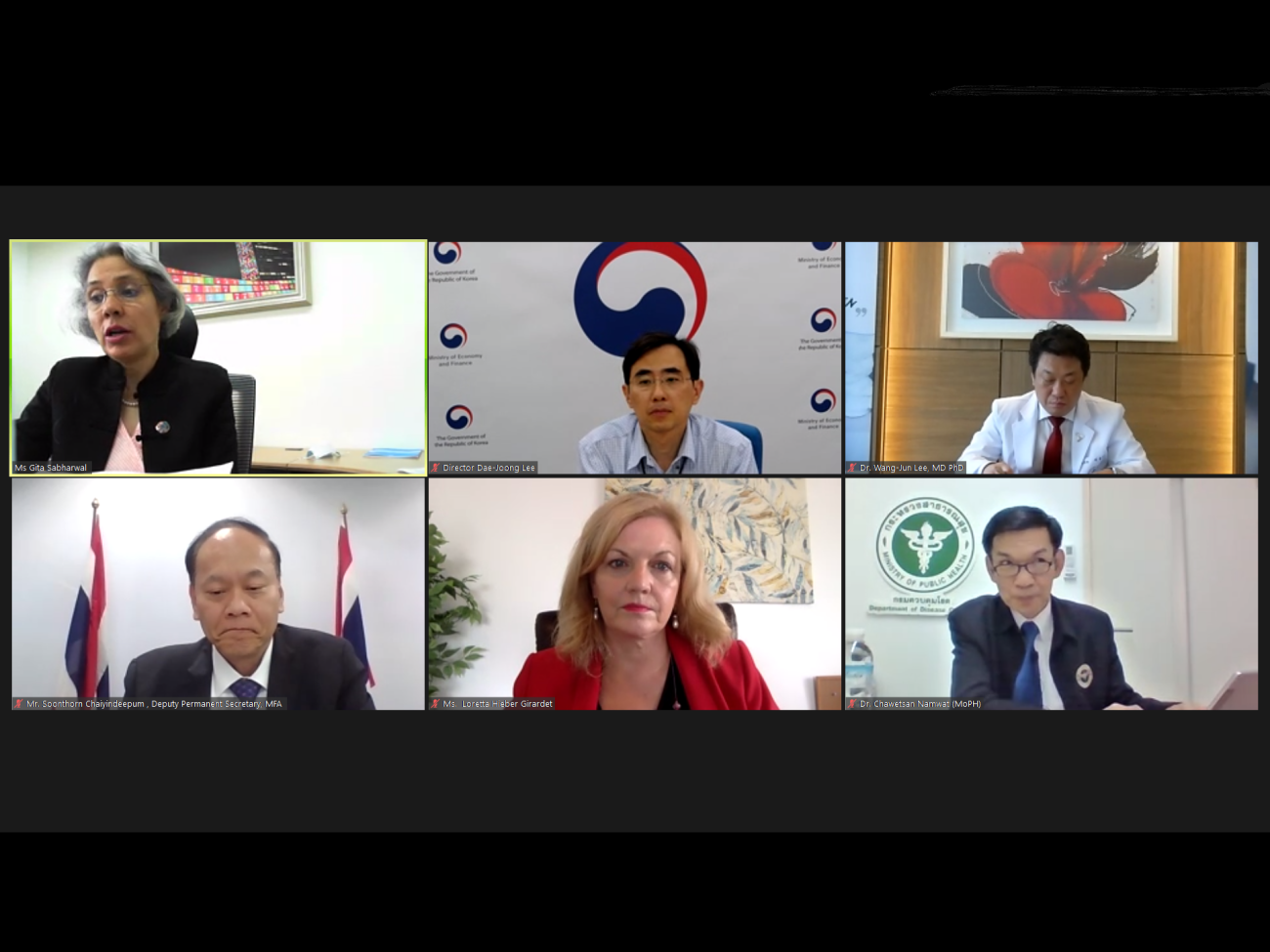Thailand and the Republic of Korea see opportunities in the ‘New Normal’

Recovery from the COVID-19 pandemic is presenting Thailand, the Republic of Korea and other countries in Asia-Pacific with opportunities to ‘build back better’
Recovery from the COVID-19 pandemic is presenting Thailand, the Republic of Korea and other countries in Asia-Pacific with opportunities to ‘build back better’ and to chart greener and more digitally connected economies, as long as public health vigilance is maintained.
This was the overarching message from a webinar that brought together officials from Thailand and the Republic of Korea to exchange ideas and good practices as both countries begin transitioning to a ‘new normal.’
Organized by UNDRR Asia-Pacific in collaboration with the UN Resident Coordinator’s Office in Thailand and the Thai Ministry of Foreign Affairs, the webinar was an opportunity for the Republic of Korea and Thailand to share experiences about how each country had managed the COVID-19 pandemic.
Both Thailand and the Republic of Korea have stood out in the Asia-Pacific region as good examples in managing the COVID-19 crisis, said Ms Loretta Hieber Girardet, Chief of the UNDRR Regional Office for Asia and the Pacific, who moderated the 90-minute discussion, adding:
“Our goal is to facilitate a frank exchange of ideas and experiences to ensure that we don’t revert back to business as usual practices. Instead, countries should aim to incorporate resilience into their planning and recovery efforts to reduce the impact of any further pandemics or outbreaks.”
The need to incorporate new approaches to planning also extends to how the UN supports Member States said Ms Gita Sabharwal, the UN Resident Coordinator in Thailand, who wants to “reposition the UN response in-country to be cutting edge, forward-leaning and offer thought leadership to sustain the development gains made and build back better.”
Thailand, which just started its final phase of easing its lockdown measures, credits the success in containing the pandemic to its universal health coverage, according to Mr Soonthorn Chaiyindeepum, Deputy Permanent Secretary in the Ministry of Foreign Affairs of Thailand.
This was echoed by Dr Chawetsan Namwat, a director in the Thai Ministry of Public who said Thailand followed “a prevention and control strategy, like Korea, for testing, tracing and isolating cases.”
Looking forward, Mr Chaiyindeepum said the Government of Thailand is approaching its recovery with an eye towards new priorities and opportunities:
“Addressing the digital gap and enhancing digital literacy will be among the top priorities… food and health security, will also be key issues in the coming years, as we have to build up resilience and boost immunity to prepare for future emergencies.”
In the Republic of Korea, concerns over a “second wave” have not dampened the government’s desire to leverage its recovery towards transforming the economy.
“This is the right time to transform and upgrade our economy and reduce the dependency on the carbon economy,” declared Mr Dae-Joong Lee, Director of the Development Finance Division at the Korean Ministry of Economy and Finance.
To achieve this, the Republic of Korea has committed 60 billion US dollars by 2025 to finance its version of a “New Deal” to support the growth of digital and green economies and to strengthen social safety nets for workers.
Enabling Korea’s recovery efforts has been a robust public health response which has managed to strike a balance between containing COVID-19 and allowing society to function.
Dr. Wang-Jun Lee, CEO and Chairman of Myoungji Hospital and Executive Chairman of the Korean Hospital Association, cited the success of the Republic of Korea’s most recent general elections as an example. The elections saw a turnout of 66 percent, a 28-year-high, and yet resulted in no transmissions traced to the polling stations.
That said, such successes do not mean the fight is over. For the foreseeable future, people must remain vigilant and learn to adjust to a ‘new normal’ of physical distancing, said Dr. Lee:
“We have to accept the reality that we are going to live with the coronavirus for a certain period.”
This webinar is a part of a series of COVID-19 webinars organized by UNDRR Asia-Pacific to highlight emerging lessons, good practices and policy recommendations. The video of the webinar, along with links to case studies from the Republic of Korea, can be accessed here: https://www.undrr.org/event/thailand-preparing-recover-and-moving-towar…



